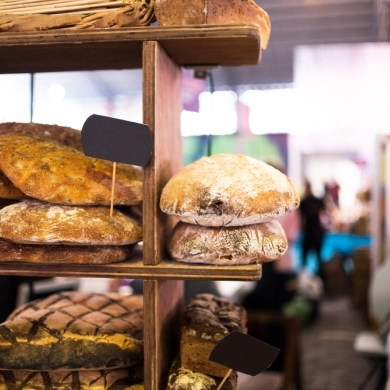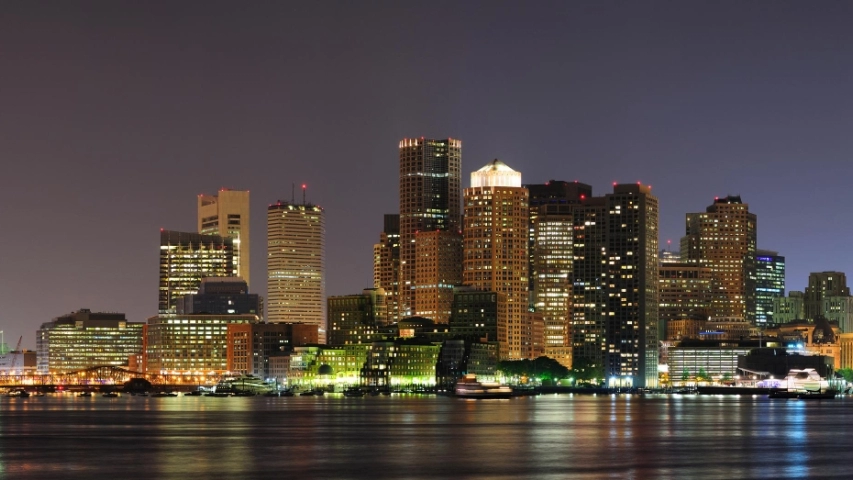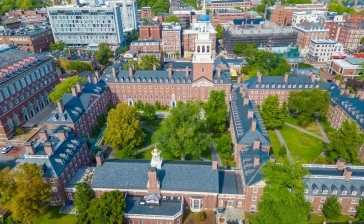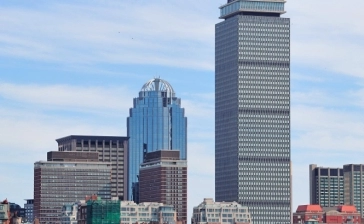Boston, one of the oldest cities in the United States, is a tourist destination rich in history, culture, and accessibility. Founded in 1630, this city not only played a crucial role in the American Revolution but has also become a modern center of education and art. For those who want to explore the city in a wheelchair, Boston offers a unique and full of accessible surprises experience.
The city is known for its "Freedom Trail", a 2.5-mile tour that takes visitors through 16 significant historical sites. This trail is mostly accessible, with flat and firm surfaces. Along the way, visitors can experience places like the Boston National Historical Park, where the USS Constitution and the Bunker Hill Monument are located, both wheelchair accessible.
The Beacon Hill area, famous for its cobblestone streets and historical architecture, has been adapted to improve its accessibility. Here, visitors can enjoy the charm of the old world while exploring local shops and restaurants. In addition, Boston Common, the oldest public park in the United States, is completely accessible and offers a quiet place to relax in the middle of the city.
Boston is also home to world-renowned museums such as the Museum of Fine Arts and the Museum of Science, both offering full wheelchair access. These cultural spaces provide ramps, elevators, and services to ensure an inclusive experience for all visitors.
The city is not lagging in culinary innovation and accessibility in its restaurants. From fresh seafood to authentic Italian dishes in the North End, visitors will find a variety of wheelchair-accessible options.
One of the highlights of Boston is its commitment to inclusion and accessibility in transportation. The public transportation system, known as "The T", offers wheelchair-accessible options, making it easy to explore the city at all times. In addition, many of the city's taxis are equipped to accommodate wheelchairs, ensuring that visitors can move around easily.
For those interested in nightlife, Boston offers a variety of theaters and live music venues, many of which are accessible. The Boston Symphony Orchestra, for example, is not only known for its exceptional performances but also for its accessibility.
Architecturally, Boston is a fascinating mix of the old and the new. The city has made great efforts to preserve its historic buildings while modernizing to be more inclusive. This is seen in places like the Faneuil Hall Marketplace, a historic shopping center and meeting point that has been updated to be fully accessible.
Interestingly, Boston is also a city of "firsts" in the United States: the first public school (Boston Latin School), the first university (Harvard), and the first subway system. Each of these historical landmarks reflects the city's innovative and progressive spirit.
In conclusion, Boston is a city that embraces its rich history while striving to be accessible and welcoming to all. Whether through its historic streets, its modern cultural institutions, or its commitment to accessibility, Boston offers a unique and complete tourist experience for those visiting in a wheelchair.
In Boston, you can find several tourist information offices that are accessible and offer a wide range of services to help you plan your visit. Here are details about some of them:
Boston Visitor Information Center:
This center offers maps, brochures, city-wide activity bookings, souvenir sales, and expert advice for exploring the city.
Address and contact:
- 139 Tremont Street, Boston, MA 02111
- Phone: 888-SEE-BOSTON (888-733-2678) Hours:
- Open daily from 8:30 am to 4:00 pm
Greater Boston Convention and Visitors Bureau (Meet Boston):
This location offers an information center at Boston Common, in addition to general tourism and event services.
Address and contact:
- 99 High Street, Suite 1000, Boston, MA 02110 Main
- Phone: 617.536.4100 Fax: 617.424.7664
- Email: info@meetboston.com
Prudential Towers (Information Center)
- In Boston, MA, 02116. Phone: (+1)888-733-2678.
USS Constitution Museum
- At the Charlestown Navy Yard, Charlestown, MA, 02129. Phone: (+1)617-242-5692.
Boston Harbor Islands Pavilion and Information Center
- At 191W Atlantic Avenue, Boston, MA, 02110. Phone: (+1)617-223-8666.
These offices are equipped to provide detailed information about attractions, accommodations, dining, and activities in the city. Additionally, they are designed to be accessible to visitors in wheelchairs, ensuring that everyone can enjoy their stay in Boston without any issues.
Boston City Pass:
The Boston CityPASS offers an economical and easy way to explore some of Boston's most prominent attractions. The price for adults is $79 and for children (ages 3 to 11) it's $67, representing a significant saving compared to buying individual tickets. The pass is valid for nine consecutive days starting from the first use and must be activated within the year following the purchase. Attractions included in the CityPASS are:
- New England Aquarium: Home to a variety of marine life, including a famous 550-pound green sea turtle named Myrtle and a colony of penguins.
- Museum of Science: Offers over 700 interactive exhibits on a variety of topics, including dinosaurs and earth sciences.
- Boston Harbor Cruises:
A 60-minute narrated cruise through the historic Boston Harbor.
- Franklin Park Zoo: A 72-acre zoo featuring a variety of wildlife habitats.
- Harvard Museum of Natural History: Known for its collection of Blaschka Glass Flowers and other natural history exhibits. Alternatively, instead of the Harvard museum, you can choose:
- View Boston Observation Deck: Offers 360-degree panoramic views of the city from the top three floors of the Prudential Tower.
For a person in a wheelchair, it's important to check the accessibility of each attraction. Most of Boston's attractions, including those in the CityPASS, are usually wheelchair accessible. However, it's advisable to plan ahead, especially during peak seasons, to ensure that the facilities and services are suitable for your specific needs.
Airport:
Boston Logan International Airport is well equipped to meet the needs of travelers with reduced mobility or who use wheelchairs. Here is a summary of the advantages and services available:
The airport has accessible and family restrooms in all terminals, of course, it also has accessible ramps from the sidewalk to the terminal on all levels, for both departures and arrivals.
Elevators equipped with emergency call buttons and Braille in all garages and terminals.
It is recommended to inform airlines and travel agents about specific accommodation needs in advance.
The airport's interactive maps and terminal directories help identify the location of accessible services and facilities.
In case of medical emergency, audiovisual fire alarms and automatic external defibrillators are available throughout the airport.
Passengers with disabilities, including those who use wheelchairs, hearing aids, cochlear implants, service dogs, or other devices, should inform security personnel at checkpoints.
For assistance in preparing for the security screening process, passengers can contact the Transportation Security Administration (TSA) through their website or the TSA Cares hotline.
You should also know that service animals are allowed throughout the airport.
Sensory/Quiet Room:
In Terminal E there is a sensory/quiet room, providing a safe space for passengers with sensory needs.
Additional Information
For more details on these services and to better plan your trip, I recommend visiting the official website of Boston Logan International Airport and iFly's special needs and disability guide for Logan Airport. These resources will provide you with up-to-date and comprehensive information to ensure a comfortable and accessible travel experience.
Address and contact
- 1 Harborside Dr., Boston, MA 02128, United States
- Phone: (+1) 800-235-6426
- Web: https://www.massport.com/logan-airport
Port:
The Port of Boston is a modern and accessible facility, designed to accommodate the needs of all travelers, including those who use wheelchairs. Below are some of the facilities and services of the same:
General Accessibility: The terminals of the Port of Boston are designed with accessibility in mind. This means gentle ramps instead of stairs, automatic doors, and wide corridors to facilitate movement in a wheelchair.
Accessible Restrooms: You can expect to find accessible restrooms in all the port's terminals. These restrooms are equipped with features such as support bars, enough space to maneuver a wheelchair, and sinks and toilets at accessible heights.
Accessible Parking: There are parking areas designated for people with disabilities near the entrances to the terminals. These spaces are intended to provide easier access for those who have difficulty walking or are in wheelchairs.
Assistance Service: In many terminals, assistance services are available for those who need extra help. This may include help with luggage, transportation within the terminal, or assistance boarding and disembarking.
Accessible Public Transport: Public transportation to and from the port is equipped to handle wheelchairs, with buses and trains offering suitable access.
Clear Signage and Information: The signage in the terminals is clear and easy to understand, helping all travelers orient themselves and move through the facilities.
Rest Areas: The terminals have rest areas where you can take a moment to relax. These areas are accessible and offer a comfortable wait.
It is important to remember that facilities and services may vary depending on the specific terminal within the Port of Boston. If you have special needs or specific questions, it is recommended to contact the port or cruise line directly before your trip to ensure that all your needs can be adequately met.
Transportation from the airport to downtown:
To travel from Boston Logan International Airport to the city center using different means of accessible transportation for people in wheelchairs, you have several options:
Bus: The company FlixBus has buses equipped with hydraulic lift and designated spaces for wheelchairs. Wheelchairs and mobility equipment must meet certain size and weight criteria, and passengers must agree to be properly secured in the wheelchair space on board the bus. If you plan to travel with FlixBus, it is advisable to contact their customer service team in advance to ensure availability and accessibility.
Uber WAV: Uber offers a special service called Uber WAV (Wheelchair Accessible Vehicles) that provides accessible vehicles for wheelchairs. Users with folding wheelchairs can also order any type of trip available in the Uber app.
Taxis in Boston: You can use accessible taxis. Some reliable taxi companies in Boston include Boston Cab, City Cab, and Metrocab. It is important to ensure that the chosen company offers accessible vehicles for wheelchairs.
Here is the contact for Boston Cap:
- Phone: (+1) (617) 536-5010
- Email: support@bostoncab.us
Boston Public Transportation (MBTA): The bus network managed by MBTA in Boston is accessible and can be a good option if you are heading to a place where there are no nearby subway stops. In addition, the Boston subway is also a viable option. It is important to verify the accessibility of the specific stations you plan to use.
Private airport shuttle services: For amore personalized experience, you can book a private transfer from the airport. Various companies offer this service and can accommodate specific requirements, such as wheelchair accessibility. It is advisable to make reservations in advance and provide details about your accessibility needs.
Remember that each service may have its own requirements and limitations in terms of the dimensions and weight of the wheelchair, so it is advisable to contact them directly to obtain detailed information and make reservations.
Transportation within the city:
In Boston, people in wheelchairs have several accessible transportation options to move around the city:
Uber WAV (Wheelchair Accessible Vehicles): Uber offers the Uber WAV service, which provides wheelchair-accessible vehicles in Boston. These vehicles are equipped with ramps or lifts for easy access. Additionally, Uber has other services like Uber Assist, where drivers can receive training to help users with special needs enter the vehicles.
Lyft: Although not specifically mentioned for Boston, Lyft also offers wheelchair-accessible vehicles in some cities, suggesting the possibility that this service may be available in Boston.
Taxis: Accessible taxis in Boston, known as WAVs (Wheelchair Accessible Vehicles), are part of the city's general taxi fleet. It is not necessary to complete applications or schedule trips in advance to use WAVs. There are about 100 WAVs in Boston, authorized by the Hackney Unit of the Boston Police.
Contact for Boston Cap:
- Phone: (+1) (617) 536-5010
- Email: support@bostoncab.us
Public Transportation (MBTA): MBTA offers routes and accessibility options for buses, subways, and commuter trains. MBTA buses are accessible for people with disabilities. Additionally, they offer discounts for seniors and residents with disabilities on buses, subways, and commuter trains.
The Ride (Paratransit Program): If your disability prevents you from using the standard public transportation system, you can apply for MBTA's paratransit program, called The Ride. Visitors from outside the city may also be eligible to use this service during their visit.
Subway (The T): The Boston subway, known as "The T", is accessible along the Red, Green, Blue, and Orange lines. It is important to plan your trip in advance, as not all stations are wheelchair accessible.
Silver Line: A bus service that operates on streets and underground tunnels connecting with subway lines, commuter trains, and Amtrak at South Station. Although marketed as a subway line, it is actually served by buses.
MBTA Commuter Rail: Numerous peripheral cities up to Providence, RI, are served by the MBTA commuter train. All stations are accessible and offer a 50% discount on tickets for people with a disability card or a visible disability (for example, passengers in wheelchairs).
Little Italy:
The Little Italy neighborhood in Boston, officially known as North End, is a charming and vibrant corner of the city, filled with history, culture, and culinary delights. This picturesque neighborhood, one of Boston's oldest, offers a unique experience for visitors, including those who use wheelchairs.
With its roots dating back to the 17th century, North End is home to rich colonial history and a strong Italian heritage. The cobblestone streets and brick buildings give the neighborhood a distinctive charm. For a visitor in a wheelchair, many of these historic streets are accessible, though some areas may require a bit more effort due to their age.
Little Italy is famous for its authentic Italian cuisine. Hanover Street, the neighborhood's main artery, is filled with restaurants, cafes, and bakeries offering everything from classic Italian dishes to delicious cannolis. Many of these establishments are accessible, though it's advisable to check in advance, as some older venues may have access limitations.
Of course, North End is not just known for its food. Historic sites like the Paul Revere House and the Old North Church are accessible and offer a window into America's revolutionary history. These sites have been adapted to be accessible, allowing wheelchair-using visitors to fully experience their historical significance.
On the other hand, North End's parks, like Langone Park and Christopher Columbus Park, offer serene green spaces and are completely accessible. These parks are perfect spots for enjoying a moment of tranquility or a picnic. Additionally, the nearby waterfront provides stunning views of Boston Harbor, with paved paths and easily accessible in a wheelchair.
You should also know that Little Italy hosts several festivals and cultural events throughout the year, highlighting the famous Feast of St. Anthony and the Feast of San Gennaro. These events feature live music, delicious food, and a festive atmosphere. The streets and squares where these events take place are usually wheelchair accessible.
Besides food, North End offers a variety of shops and markets where visitors can buy souvenirs, authentic Italian products, and local crafts. The shopping streets are mostly accessible, though some smaller stores might present some accessibility issues.
North End is a friendly and welcoming neighborhood, with accessible services and amenities, including adapted public restrooms and designated disabled parking spaces. However, given the area's popularity, it's recommended to plan ahead, especially during festivals or on weekends.
Conclusion:
Little Italy in Boston is a destination that captivates with its historic charm, rich cultural heritage, and unparalleled gastronomic offering. For visitors with mobility issues, North End offers an accessible and memorable experience, inviting everyone to discover the hidden treasures of this iconic Boston neighborhood. With a mix of history, culture, and delicious Italian food, it's a place that promises to leave lasting memories.
Chinatown:
This neighborhood in Boston is a dynamic and colorful cultural enclave, located in the heart of the city. This vibrant neighborhood offers a rich mix of history, culture, art, and gastronomy, making it a destination you shouldn't miss when visiting Boston.
Boston's Chinatown, established in the late 19th century, is the third largest Chinatown in the United States. Over the years, it has served as an important cultural and social center for the Asian community in Boston. Despite its modernization, the neighborhood has retained its unique cultural identity, with traditional Chinese lanterns, guardian lions, and colorful murals adorning its streets.
Gastronomy is one of Chinatown's biggest attractions. From dim sum to noodles and regional Chinese dishes, the options are varied and authentic. Many restaurants in Chinatown are wheelchair accessible, with street-level entrances and spacious interiors.
The neighborhood is a canvas of artistic and architectural expressions. The Chinatown Gate, decorated with traditional Chinese details, welcomes visitors. The neighborhood's art galleries
and cultural centers, many of which are accessible, showcase works by local artists and provide information about the rich history and diversity of the Asian community in Boston.
It's also important to know that Chinatown is the center of numerous cultural events and festivities, such as Chinese New Year, celebrated with parades, lion dances, and fireworks. These events are generally accessible and offer wheelchair-using visitors a unique opportunity to experience Chinese traditions and culture.
The streets of Chinatown are filled with shops and markets where you can find everything from traditional Chinese herbs to handicrafts and clothing. While some smaller shops may be less accessible, most streets and major shops are easily accessible for those in wheelchairs.
Additionally, the neighborhood features green spaces like the Rose Fitzgerald Kennedy Greenway, a linear park that runs through Chinatown. This park offers a tranquil respite from the urban hustle and is completely accessible, with paved paths and rest areas.
Chinatown in Boston strives to be accessible to all. Adapted public restrooms are available, and the public transportation in the area, including the MBTA, is generally wheelchair accessible, facilitating arrival and mobility within the neighborhood.
Conclusion:
Visiting Chinatown in Boston is to immerse yourself in a world of cultural and sensory experiences. For wheelchair-using visitors, the neighborhood offers reasonable access and the opportunity to enjoy its vibrant street life, excellent cuisine, and rich cultural history. Each corner of Chinatown has something unique to offer, inviting visitors to explore and discover the many hidden treasures of this fascinating Boston neighborhood.
Back Bay:
Finally, we provide information about one of Boston's most emblematic and elegant neighborhoods, which combines historic architecture, high-end fashion, and urban green spaces.
Back Bay, known for its 19th-century urban planning and rows of Victorian homes, is a testament to historic architecture. The uniformity of row houses with brick and sandstone facades, along with exquisite architectural details, creates an impressive urban landscape. For a person in a wheelchair, the wide sidewalks and access ramps in many areas make it easy to admire these architectural beauties.
The Boston Public Garden, an oasis of greenery in the city, is accessible and offers wheelchair-friendly paved paths. Visitors can enjoy the swans on the lake, colorful flowers, and artistic statues. Along the Charles River, well-maintained paths and rest areas offer panoramic views of the water and the chance to watch rowers and sailboats.
On the other hand, Newbury Street, the commercial backbone of Back Bay, is known for its fashion stores, art galleries, and elegant restaurants. While some older shops may have accessibility issues, many have adapted entrances and staff willing to assist. The cafes and restaurants with outdoor terraces are especially attractive during the warmer months.
We cannot forget Copley Square, the heart of Back Bay, a vibrant urban space surrounded by iconic buildings like the Boston Public Library, Trinity Church, and the John Hancock Building. The Boston Public Library is particularly accessible, offering ramps and elevators to explore its vast collections and impressive architecture. The square itself is an excellent place to observe city life and participate in outdoor events.
Trinity Church is not only an architectural landmark with its Richardsonian Romanesque style, but also an accessible point of interest. With ramps and elevators, it offers the opportunity to enjoy its opulent interior and artistic stained glass windows. Additionally, Copley Square is the site of the finish line for the famous Boston Marathon, an event that attracts crowds and celebrates human endurance and community spirit.
Lastly, a visit to Back Bay brings you to important educational institutions like Berklee College of Music and Boston Architectural College. Berklee, known for its concerts and recitals, is accessible and offers an opportunity to enjoy live music in an intimate setting. The Boston Architectural College, with its focus on design and architecture, adds an educational and cultural nuance to the neighborhood.
In terms of transportation, Back Bay has several public transportation lines, including the MBTA. Subway stations like Copley and Hynes Convention Center are equipped with elevators and ramps, facilitating access to the neighborhood. Additionally, accessible taxis and shared transportation services are convenient options for getting around the area.
Legal Sea Foods – Harborside: https://www.legalseafoods.com/
Legal Sea Foods at Harborside is wheelchair accessible and offers a variety of culinary options, including seafood, sushi, and vegetarian dishes. It features facilities such as outdoor seating, street parking, and private parking with spaces adapted for people with reduced mobility. Located in the Seaport district, this establishment is a popular choice for both locals and tourists, offering harbor views and a cozy atmosphere.
Address and Contact:
- 270 Northern Avenue Boston, MA 02210
- Phone: (+1) 617-530-9000
Barcelona Wine Bar South End: https://barcelonawinebar.com/
Barcelona Wine Bar South End in Boston is wheelchair accessible. This restaurant offers a culinary experience inspired by Spanish culture, focusing on clean flavors, seasonal ingredients, specialties from Spain and the Mediterranean, and rustic presentations of small plates. It also has outdoor seating options and accepts credit cards. The wheelchair accessibility and variety of culinary options make this an excellent choice for a dining experience in Boston.
Address and Contact:
- 525 Tremont St, Boston, MA 02116, USA
- Phone: (+1) 617-266-2600
1928 Beacon Hill: https://www.1928beaconhill.com/
1928 Beacon Hill, located in the heart of Boston, Massachusetts, is wheelchair accessible. This establishment offers an elegant dining experience with an ambiance reminiscent of the 1920s. Known for its extensive cocktail menu styled after that era, including a selection of bourbons, it also serves beer, wine, and coffee. In addition to being wheelchair accessible, the restaurant has an accessible restroom and adapted seating, making it convenient for all diners. It is also family-friendly and LGBTQ community friendly, offering an inclusive and welcoming atmosphere.
Operating Hours:
Monday to Friday: 4:00 - 11:00 PM
Saturdays and Sundays: 10:30 AM - 11:00 PM
Saturday and Sunday Brunch: 10:30 AM - 3:00 PM
Address and Contact:
- 97 Mount Vernon Street, Boston MA 02108
- Phone: (+1) 857-233-5662
- Email: GM@1928beaconhill.com










